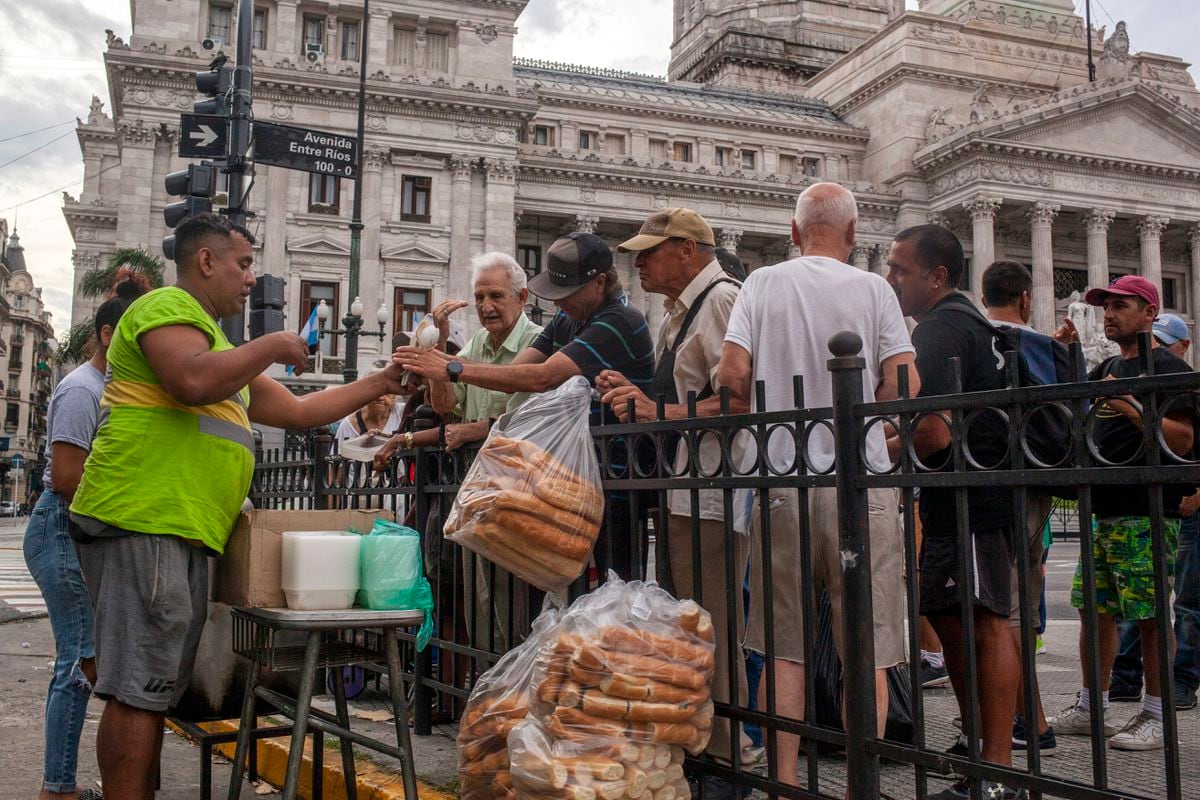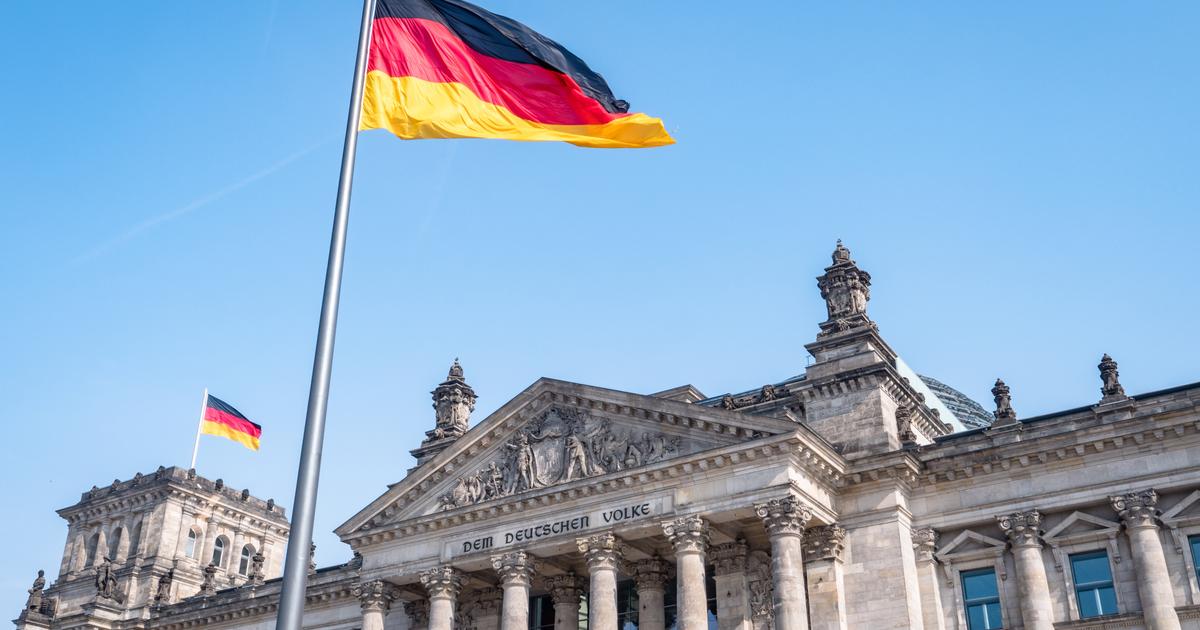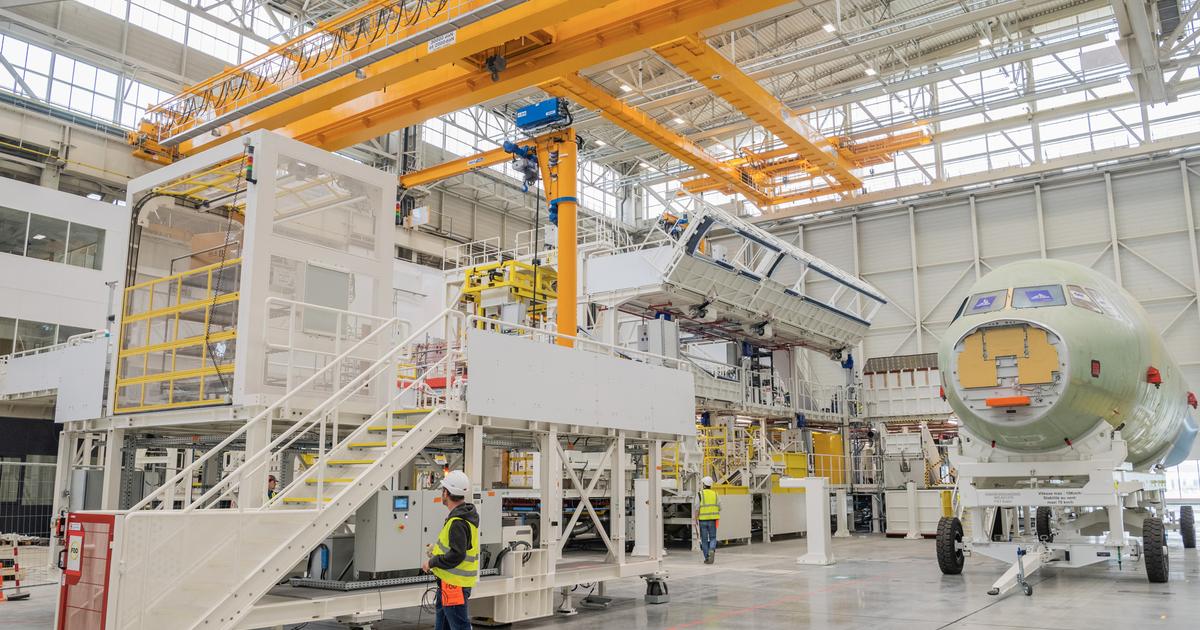Seen from the outside, Chile accelerates its step towards economic recovery due to the covid-19 crisis.
The figures suggest that activity in the country is approaching pre-pandemic levels.
In recent weeks, while the currencies of Latin American countries have depreciated against the dollar, copper exports have boosted the value of the Chilean peso.
But within the country, the inequality and precariousness that led millions to erupt in protests at the end of 2019 have worsened, drawing an uncertain path to the near future.
The deepest drop in the Chilean economy last year was in the second quarter, when the Gross Domestic Product plummeted 14%.
The government implemented a large fiscal stimulus and opened pension funds so that Chileans could make withdrawals, which transferred the equivalent of 12% of GDP to bank accounts.
Today, the economic activity index published by the central bank registers three consecutive monthly increases, reaching levels seen before the pandemic struck in March 2020. In addition, demand for copper, the source of half of the country's exports, has increased with the return of consumption in China and with the acceleration of the transition to clean energy in developed countries, for which copper is a fundamental input.
"There are very positive issues in Chile if you compare it with the rest of the region," says Elijah Oliveros-Rosen, an economist who covers Latin America for S&P Global Ratings.
A year ago, Oliveros-Rosen published an analysis in which he predicted that Chile would be one of the first countries in Latin America to recover from the economic crisis caused by the pandemic.
The country has vaccinated about 20% of its population, well above the world average of 3.5%.
“This means that the reopening of services, of some of the sectors most affected by the pandemic, will occur a little earlier than in other countries.
Obviously, this helps economic growth ”, assures the specialist.
The data suggests that the Chilean economy has learned to operate with restrictive measures, said Luciano Rostagno, Latin America strategist at Banco Mizuho do Brasil in a note to clients and investors.
The bank estimates that Chile will fully recover by the middle of this year.
“We believe that Chile's clear leadership in vaccination efforts in Latin America is protecting the burden from further harm.
However, looking ahead, the election of Chile's Constitutional Convention scheduled for April 11 poses a risk to the currency, ”he wrote.
Historic convention
Chile has a historic process on the horizon.
On April 11, 155 members of the Constituent Assembly will be elected, who will be given the task of writing a new Constitution to replace the one that has governed the country since 1980, adopted during the dictatorship of Augusto Pinochet.
The demand for a new fundamental charter was born from a social outbreak in which millions of Chileans took to the streets and paralyzed parts of the country at the end of 2019, fed up with the inequality and precariousness in which a large part of society lives.
Outside the country, the protests took many by surprise, since for years the Chilean economy was considered a model among its emerging peers due to its sustained growth rates and the strength of its banking and pension systems.
The pandemic worsened this inequality, experts agree.
"One thing is economic growth in Chile, which has been improving rapidly, and another is the composition of economic growth," says Oliveros-Rosen: "We are seeing an economic recovery in Chile but with more inequality and this applies to the entire region now. most of the countries globally ”.
The pandemic favored people who were able to work from home, but many of those who were unable to do so lost their jobs.
In Chile, only half of the two million jobs lost in the last year have been recovered.
And the benefit of being able to withdraw money from your pension fund only applies to those who have a formal job.
Chile is among the six most unequal countries in the world, according to the World Inequality Database directed by French economist Thomas Piketty.
Half of the workers in Chile have an average salary of less than 400,000 pesos ($ 550), when the cost of living is high compared to other countries in the region, says Marco Kremerman, an economist at Fundación Sol, a research center. in Santiago.
More poverty
"What has happened precisely in this pandemic is that, despite the fact that some productive sectors have even generated more utility than a year before the pandemic, households have been impoverished," says Kremerman.
"We still do not have an official estimate, it will not be until the middle of the year with the socioeconomic characterization survey, but the projections suggest that the situation of households is more adverse than the one they had before the pandemic and before the social outbreak" , Add.
Kremerman does not agree with the optimistic vision of foreign investors: “It is interesting to do a reading and an analysis from power.
For the financial markets, be it Wall Street or other markets, the question is whether or not the Chilean model that has generated so much wealth for the richest, the same that has us within the most unequal countries in the world, is maintained or not ” .
If the Convention does not bring the change demanded by 78% of Chileans who voted to replace the Constitution with a new one, Kremerman believes, “that would mean that once again the risk of a social outbreak, of a political crisis, remains, I think that should worry about Wall Street ”.
It is clear that Chile will see an economic rebound and that the signs indicate that it will be more accelerated than in other countries, says Rodrigo Valdés, former Minister of Finance and professor of economics at the Pontificia Universidad Católica de Chile, by phone.
It is also clear that the majority of Chileans want a more equitable, less precarious economy with better opportunities.
The question that remains is: what happens after recovery?
“My biggest question is: how much will growth be next year?
What happens after this cyclical recovery?
What we do not know is where the potential growth of the economy is ”, points out the academic.
“We don't know yet.
This is also connected with the fact that we can fall into a negative spiral of low growth, unemployment, social discontent, more disorder, more protests.
Or a positive spiral, in which the economy recovers and the process of writing a new social contract, which is always stressful, turns out well.
In other words, we have the opportunity to look more like a European country after this, than a Latin American country ”.





/cloudfront-eu-central-1.images.arcpublishing.com/prisa/RK3AI2H26NFTRJ3VH3EVPP573E.jpg)









